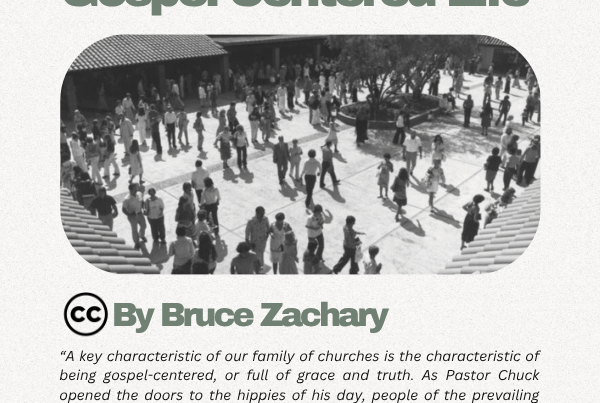
The apostle Paul seemed to contradict himself when he rebuked the Corinthians, stating, “…Some do not have the knowledge of God. I speak this to your shame” (1 Corinthians 15:34), and yet a few chapters before, he claimed, “…knowledge puffs up…” (1 Corinthians 8:1). So how do believers gain knowledge of God but avoid being puffed up in pride? The answer is in our motivation. Our desire must be to obtain a real and satisfying relationship with the Lord Himself. The aim of knowledge must always be for the purpose of intimacy–not accolades. God is more than willing to assist us in arriving at this divine fellowship, choosing to reveal more of Himself as we study and learn.
J.I. Packer gives straightforward instructions to guide believers into a deeper relationship with God through their knowledge of Him. He writes in his book, Knowing God, “The rule for doing this is simple but demanding. It is that we turn each truth that we learn about God into a matter for meditation before God, leading to prayer and praise to God.” This advice works as a way to draw near to God personally through such things as reading the Scriptures, listening to a sermon or podcast, and even while reading a Christian book. Let’s break down Packer’s three helpful steps for practical application in our own lives:
1. Identify a truth about God in the Word
Read a passage of Scripture multiple times, seeking specifically what you are learning about God’s character and nature. Write down what the Bible says about God, whether it be about the Father, the Son or the Holy Spirit. Why does this help? Because growing in relationship with someone requires knowing accurate information about them. The Scriptures provides truth about God’s identity and moral character, which forms the foundation for our knowledge of Him.
2. Meditate on the truth in God’s presence
After identifying these truths about God, take some time to meditate on what you’ve discovered. Meditation is done by taking considerable time to think about and review various discoveries about God’s Word. Ask questions about what you’ve discovered, and seek answers in the Bible through cross-references. Sometimes it can help to paraphrase what you’ve read in your own words as a way of making sure you understand what the Scriptures are really communicating. You may want to speak out loud to stay focused on the task, which also allows you to enter into a dynamic conversation with God as He reveals Himself to you. Consider it a time of communion, and keep in mind that meditation in this regard must always be done in God’s presence. Believers meditate upon Him and with Him. It must be done in the framework of a relationship with Him and not just a gathering of facts. This distinction makes all the difference if our goal is to grow in our relationship with God.
3. Thank God in prayer for revealing Himself
Close by taking a moment in prayer to admire and thank God for what He showed you as you studied. Rejoice over the fact that God loves you so much that He would reveal His nature and character to you, which ultimately opens up the door for fellowship with Him. Praise the Lord that the “…Infinite, unknowable and transcendent God condescends to reveal Himself in a measure or mode that is intelligible to the limited understanding of mere mortals” (E.D. Blodgett). Delight in the “…Manner of love the Father has bestowed on us, that we should be called children of God! Therefore the world does not know us, because it did not know Him” (1 John 3:1).
In The Knowledge of the Holy, A.W. Tozer explores the utter impossibility of getting to know God apart from His willful assistance:
“We know nothing like the divine holiness. It stands apart, unique, unapproachable, incomprehensible, and unattainable. The natural man is blind to it. He may fear God’s power and admire His wisdom, but His holiness he cannot even imagine. Only the Spirit of the Holy can impart to the human spirit the knowledge of the holy. Yet as electric power flows only through a conductor, so the Spirit flows through truth and must find some measure of truth in the mind before He can illuminate the heart. Faith wakes at the voice of truth but responds to no other sound. ‘Faith cometh by hearing, and hearing by the word of God.’ Theological knowledge is the medium through which the Spirit flows into the human heart, yet there must be humble penitence in the heart before truth can produce faith. The Spirit of God is the Spirit of Truth. It is possible to have some truth in the mind without having the Spirit in the heart, but it is never possible to have the Spirit apart from truth.”
Thank you, Jesus, for sending the Spirit to help us come to know God relationally, so we aren’t guilty of having a “…Zeal for God, but not according to knowledge” (Romans 10:2). Our goal, through all eternity, is to grow in our knowledge and love of God for the purpose of communion. Jesus prayed that this would happen, for “…This is eternal life, that they may know You, the only true God…” (John 17:3). Taking the time to work through these three steps compels us to move from simply reading the Bible into relating with God through the Bible.









